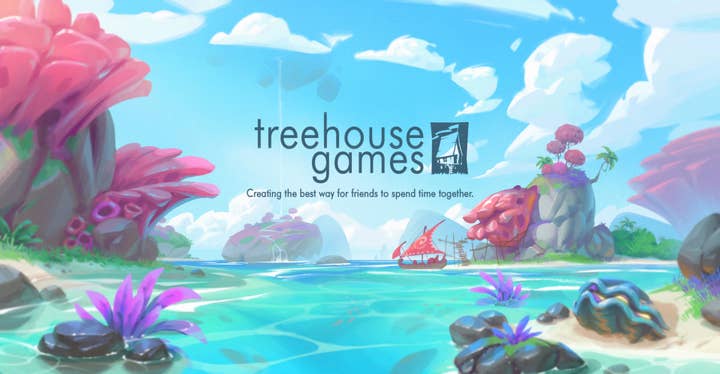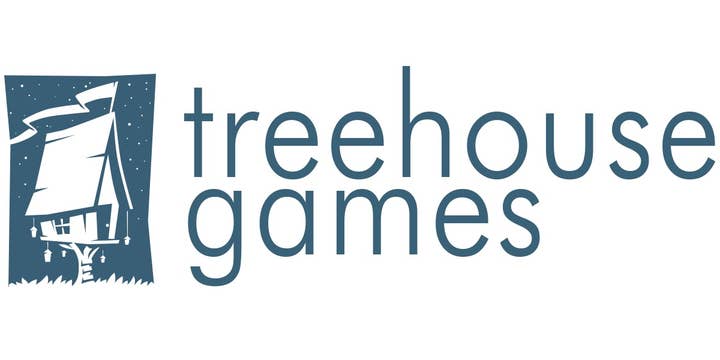Treehouse Games lands $2.6 million for collaborative games
Co-founders Michael Chu and Ryan Sullivan want to make games that foster camaraderie, generosity among friends
Games industry entrepreneurs have continued to find funding despite COVID-19, as Treehouse Games today announced that it has raised $2.6 million in seed funding to build cooperative games.
Speaking with GamesIndustry.biz, Treehouse CEO Michael Chu and president Ryan Sullivan say they had begun talking with investors just before a pandemic was declared in March, and were fortunate enough to carry the momentum of those early talks through to funding.
London Venture Partners (an investor in Unity, Supercell, Playfish, and more) is leading this round of funding, with participation from Transcend Fund (thatgamecompany, Singularity Six) and Super Evil Megacorp CEO Kristian Segestrale (Tribe Gaming).
The Treehouse pitch that drew those investors' interest centers around collaborative play and was informed by Chu's time as a product lead at League of Legends creator Riot Games.
"What kind of games can allow you to have a feeling of generosity between you and your friend?"
Michael Chu
"We were just seeing more and more people who were using games as an everyday social activity, a way to hang out with their friends that was just as good as going out to get coffee or getting dinner," Chu says. "Looking at this audience, we were like, 'These are our people.' It's an audience we think has been underserved for a very long time, and we want to change that."
Chu says many of the games where players are hanging out are nominally competitive titles, but said there are vast audiences within those games who are there to socialize more than they are to compete.
"We think it's a huge wave that is affecting a whole generation of players," he says.

The company's first game will blend genres, but Chu is tight-lipped about it beyond that. He suggests it's going to be more cooperative than competitive because "that's where we think the untouched opportunity is."
"We've been taking inspiration from great real-life experiences and why isn't there an equivalent experience in games? The feeling of a road trip is a sharp and memorable thing that friends share. So that camaraderie, that feeling people remember together, what kind of games can allow you to have a feeling like that while playing together? What kind of games can allow you to have a feeling of generosity between you and your friend? There are so many incredibly memorable things in real life that just don't have an equivalent in games yet."
The team is still small -- just six people -- and Chu and Sullivan won't say how big they're hoping to get. Right now they've also got an even mix of people from AAA backgrounds and those with a more independent work history, and the company reflects both styles of development.
When it comes to company culture, Chu's description of Treehouse sounds more indie than industrial.
"Typically indies are a little chaotic when they start. But from the moment of formation of this company, we've had a really good process"
Ryan Sullivan
"We've been very thoughtful of making a culture of very open communication, with a lot of trust and respect that other people are bringing great thoughts to the table," Chu says. "And we have an expectation that every member of the team thinks about the larger thing we're trying to accomplish. We want the artist to have opinions about design, and the engineer to have opinions about art. That's been a really fun thing to embrace."
At the same time, Sullivan (who comes from a more indie background and most recently co-founded Sirvo) appreciated Treehouse's AAA learnings.
"We've been bringing really robust and mature production practices, largely developed from Riot, onto this team," Sullivan says. "And for me it's a really unique experience because typically indies are a little chaotic when they start. But from the moment of formation of this company, we've had a really good process. We've been really mature about, 'Why are we doing this work? Let's validate it.' That's important to do. And that's made this team experience pretty distinct from other things I've seen."
Considering Chu's time at Riot and that company's struggles with player toxicity, we ask what Treehouse is doing to ensuring the community experiences around which the studio is built will be positive ones.
"Both our games and the company were founded on these dreams of games that can improve friendships and connect people," Chu says. "It's a deeply inclusive premise. That's the world we want to live in, and I think in our game, that's what we're going to want to speak to, that people can come and have a great time with other people. I think there's a lot [of benefit] to being able to say a game from the get go cares about that, and I hope to attract the right community that really desires the same."









